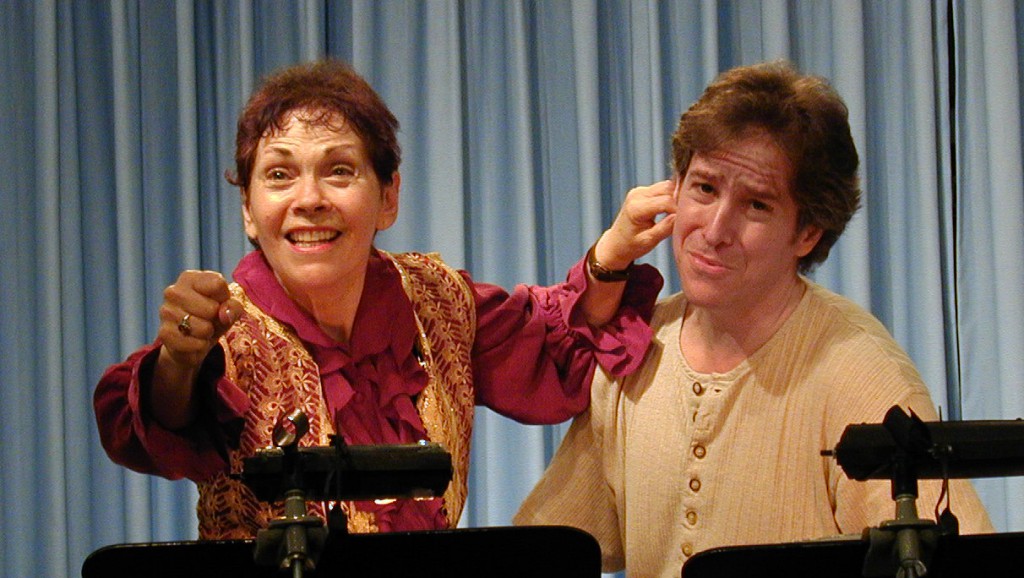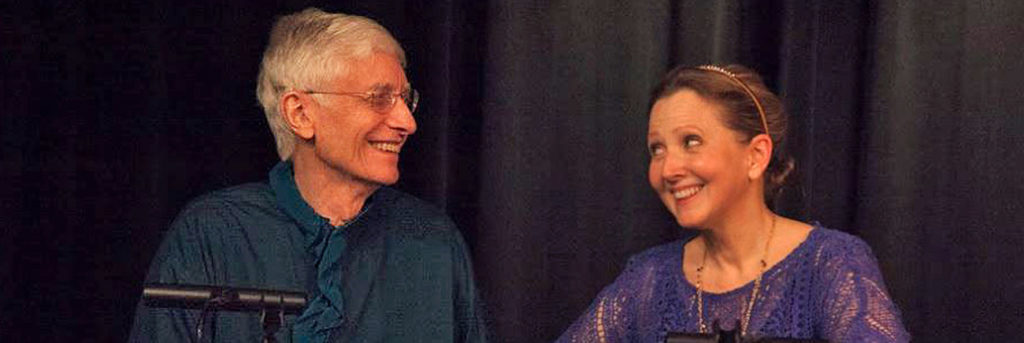The quotations on this page are from Eli Siegel’s great lectures on each of the plays—

Shakespeare—& What Is Love? a consideration of The Taming of the Shrew
“Shakespeare was solving a problem through these people in Padua that he saw as an everlasting problem of persons….Katharina is the energy in woman looking for a means of showing itself. Because she hasn’t found it yet, she is in an ill mood. She represents the desire in ourselves to come to a repose through meeting an energy that we respect….Once we can see the world as beautiful, we shall be in a very fortunate position of not wanting to use our energy in the field of anger in such a manner that we are displeased with ourselves.”

Absurdity in a Dukedom; or, Shakespeare’s Twelfth Night
“This play can be said to be a lot about self-love trying to be love….Olivia is not wholly honest. She is stiff, likewise, and she is afraid of what she may feel….Malvolio seems to represent also a certain kind of self-slavery, a stiffness….Viola represents the outside world coming to stir up both Orsino and Olivia….The Clown is against all that stiffness; he is also against insincerity….There is a kind of emotional dance…. and if the play is seen as having in it both an approach to ethics, an approach to good and bad, and to events, with a surrounding of infinity, then the play is truly felt.”
A Midsummer Night’s Dream; or, Earthy Whirl
“It comes to this: Shakespeare bows to a world both shimmering and obstructive; gossamer and solid; and the play presents reality in its mysteriousness and solidity. How is that great mix-up of the world, and all the confusion in ourselves, to come to anything that is seen as sensible?….Aesthetics can, while accepting the utmost in confusion, in the moment of courageous acceptance see the music that brings it all together. That is one of the sweet glories of A Midsummer Night’s Dream.”
Julius Caesar; or, Mixed Motives in Ancient Rome
“Julius Caesar is essentially about confusion. There isn’t a person in the play who isn’t perplexed. We have what interested Shakespeare so much: the way emotion is flexible, contrary, rich, puzzling; and the way people can have one feeling and have something so different in the same minute….We can ask, How kind was Caesar? I see kindness as the height of intellect, the height of subtlety, the height of perception….I think Caesar was kind, and did have a great love in his heart—more so, perhaps, than any other Roman.”
Shakespeare’s Othello; or, Clever and Deep Evil
“According to Aesthetic Realism, Iago represents the cunningness of evil in every person….He says to people, Look, if you think you’ve dealt with the problem of evil that quickly, by making speeches about it and smiling at each other—don’t fool yourselves!…The only way you can fight for good is to keep on understanding evil and never get tired. Otherwise, evil will come upon you, and fool you.”
Shakespeare’s Hamlet: Revisited
After more than three centuries, it is Eli Siegel who explains what William Shakespeare intended, and answers the central question of the play—why Hamlet could not avenge his father: “It is a new Hamlet because it is a Hamlet who does not care for his father entirely.” Shakespeare’s Hamlet: Revisited is a critical masterpiece: a magnificent, joyful oneness of poetry and drama, scene and comment. – From the annnouncement
Shakespeare’s The Tempest; or, Darkness, I Love You
“The meaning of the play is that if you go far enough and deep enough you’ll find out who you are and what the world is.” —Eli Siegel. Our greatest victory, Shakespeare powerfully and delightfully shows, is not in domination, acquisition, running other people’s lives. It is to see the world and ourselves truly, with courage!










